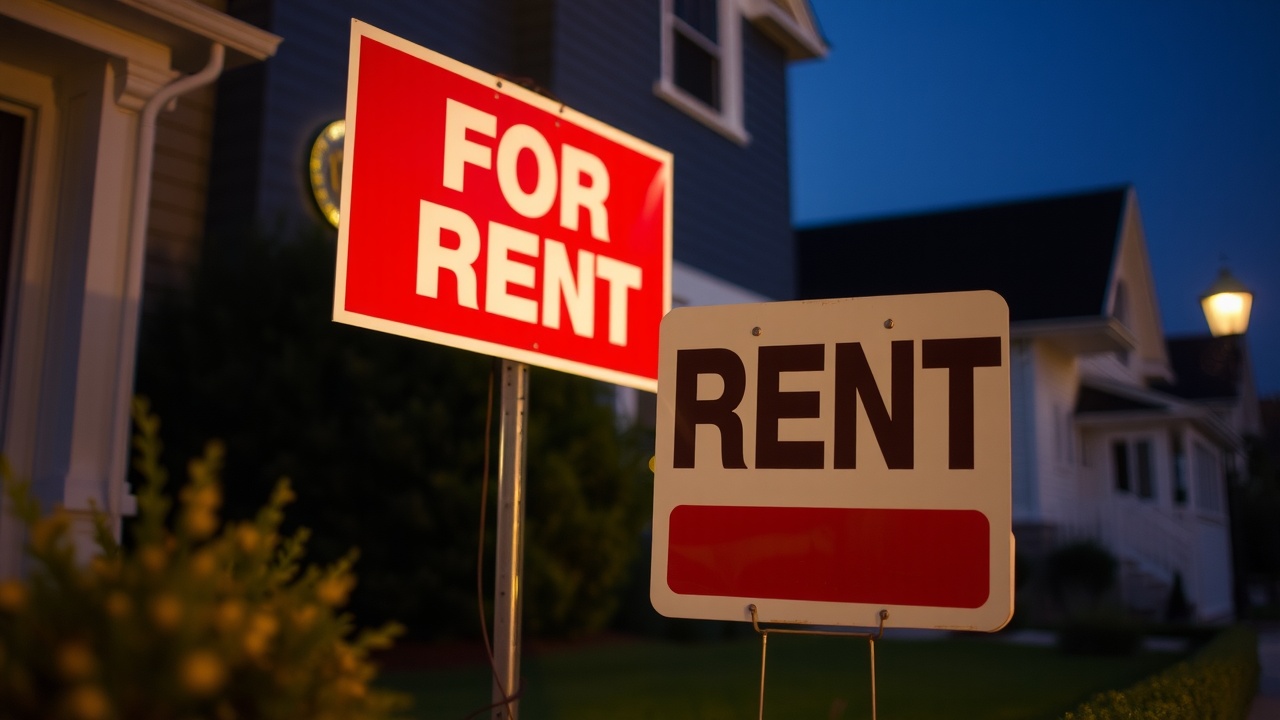
Although the long-awaited bill is making headway in the House of Lords, landlords are worried
What effects will it have on you?
With this week's passage of the contentious Renters Rights Bill through the House of Lords, new protections for tenants have become a reality.
The Renters Rights Bill will, among other things, outlaw fixed-term tenancies and prohibit no-fault evictions and in-tenancy rent increases in England.
Another setback for investors in buy-to-let properties.
During this week's committee stage of the legislation, peers have been deliberating amendments to the Bill, which passed its second reading in the House of Lords in February.
Tory peers and landlords have warned that it is being hurried and may force landlords out of the market, which would raise rents even more.
Two-thirds of UK landlords intend to exit the rental market or scale back their portfolios this year, according to research by the flat share website SpareRoom, with 88% saying they have no faith in the rental market in 2025.
Although the plans have been supported by renter associations, landlords have emphasized that they will require time to adjust to the changes.
The National Residential Landlords Association's chief executive, Ben Beadle, stated: "The largest shift to the industry in more than three decades is the termination of Section 21 no explanation repossessions. It is crucial to allow enough time after the bill is passed so that the industry can adequately get ready.
Tenancy agreements for more than 4.5 million households will need to be updated, landlords and letting agents will need to receive training, and insurance and mortgage companies will need to modify their rates and policies.
"This won't happen overnight, and the government must release guidelines.
Matthew Pennycook, the housing minister, stated: "The Bill will modernize the regulation of our nation's unfair and unsafe private rental sector.
By giving them more security, rights, and protections, it will enable renters to stay in their homes longer, establish communities, and lower their risk of homelessness.
The Renters Rights Bill: What is it?
In an effort to provide tenants in privately rented homes with more comprehensive protection, the legislation plans to implement a number of new requirements.
Compared to the Renters' Reform Bill of the previous Tory government, which stated that it would postpone the elimination of Section 21 notices, it goes further.
In addition to prohibiting no-fault evictions, this bill would also stop landlords from denying rent to tenants who are receiving benefits or who have children.
Landlords who fail to maintain a "decent standard" risk fines of up to 7,000.
Additionally, landlords would only be permitted to raise rent to the "market rate" once a year.
All new tenancies will automatically be converted to periodic tenancies instead of the usual 12-month contracts.
Tenants will still have two months' notice to terminate the lease, but landlords will need a good reason to evict tenants.
Will both landlords and renters benefit from the Renters Reform Bill?
Since the changes provide tenants greater security, it should come as no surprise that proponents of rental reform have embraced them.
However, landlord associations and some members of the House of Lords remain concerned, especially regarding the expiration of fixed-term tenancies, which proponents say give real estate investors greater security.
Given the increased requirements for serving an eviction notice, there are concerns that this may affect student housing.
A legal exemption permits landlords to reclaim properties rented to students in accordance with the academic calendar, but only in cases where the property is a house in multiple occupation (HMO) with three or more bedrooms.
Many landlords who own smaller properties are left out, according to the National Residential Landlords Association (NRLA).
NRLA CEO Ben Beadle stated: "Many landlords will completely stop renting to students if they are not certain they can reclaim their properties in time for the upcoming school year. As a result, students will have fewer options, more competition, higher rents, and fewer homes.
Goodlord, a lettings platform, has warned that the new legislation may result in higher rents, particularly since bidding wars will no longer be permitted. Additionally, new eviction regulations may actually work against tenants.
"Once the new legislation takes effect, the prohibition on bidding wars may inadvertently lead to a sharp rise in average rent prices," stated Oli Sherlock, managing director of insurance for Goodlord.
"It makes sense that many landlords would be tempted to raise their rates right away since they are only allowed to take the advertised rent.
"Removing Section 21's authority from landlords carries a genuine risk of increasing the number of rental disputes that end up in court. This may result in thousands more tenants being awarded judgments in county court for things like unpaid rent, which could harm their credit ratings and eventually prevent them from renting out properties.














Leave a comment on: How the historic Renters' Rights Bill will impact you as it ends no-fault evictions